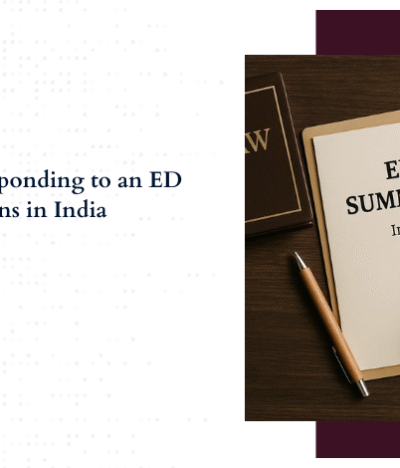The recent verdict by the Supreme Court of India establishes a significant legal position that subsequent changes in law cannot justify the delay in filing appeals. This ruling highlights the importance of adhering to prescribed time limits in legal matters, emphasizing the principle that legal rights favour only those who are vigilant. In this context, it is crucial to understand the concept of “condonation of delay”. While the Limitation Act acknowledges situations where external factors affect timely filings, it grants courts the discretionary power to overlook such delays if a party can demonstrate “sufficient cause.” This provision has been articulated in Section 5 of the Act, which allows appeals or applications to be accepted after the stipulated period if valid reasons are presented. However, it’s essential to note that special laws may have their own provisions regarding condonation of delay, as seen for statutes like the Arbitration and Conciliation Act, 1996, where specific clauses explicitly exclude the application of Section 5 of the Limitation Act.
Background to the Dispute
The Government of the National Capital Territory of Delhi (GNCTD) initiated land acquisition under the Land Acquisition Act of 1894 for development projects, benefiting entities like DDA, DSIIDC, and DMRC. From 1957-2006 notifications were issued and compensation was determined accordingly. In some cases, compensation was deposited in the treasury as landowners did not claim it.
Thereafter, the 1894 Act repealed the 2013 Act, with Section 24 providing that acquisition proceedings will be considered as lapsed if the compensation was unpaid or where possession was not taken. In Pune Municipal Corporation v. Harak Chand Mistrimal Solanki, it was ruled that the deposition of compensation in the treasury did not meet the payment requirement, which caused the proceedings to lapse. In Sree Balaji Nagar Residential Association v. State of Tamil Nadu held that a stay order would not count as possession, which also led to the lapse of proceedings. Landowners sought declarations from the High Court between 2014 to 2017 that GNCTD’s acquisition proceedings had lapsed due to either non-payment or non-possession. The High Court ruled in favour of the landowners, and subsequent appeals were dismissed by the Supreme Court.
The judgement in Yogesh Neema v. State of Madhya Pradesh questioned the precedent set by Sree Balaji Nagar Residential Association (supra) and referred the issue to a larger bench, emphasizing that court actions should not harm parties. A three-judge bench in Indore Development Authority v. Shailendra ruled that “paid” means “tender” of payment, and that compensation deposited in the Government Treasury meets the requirement of “deposit.” Thus, the precedent set in Pune Municipal Corporation (supra) was held to be incorrect, and Sree Balaji Nagar Residential Association (supra) verdict was also overruled. Following Shailendra (supra) verdict, appellants filed various appeals, which were then referred to a larger bench.
A five-judge bench in Indore Development Authority v. Manoharlal decided that “or” in Section 24(2) should be read as “and,” meaning both non-payment and non-possession are required for proceedings to lapse. It ruled that “paid” means tendered payment and “deposit” includes deposits in both the government treasury and the Reference Court. Thus, judgements in Pune Municipal Corporation (supra), Sree Balaji Nagar Residential Association (supra), and Shailendra (supra) were overruled.
Following the precedent set in Manoharlal (supra), the Pune Municipal Corporation judgment was recalled. As such, the Appellants filed new appeals against High Court orders that had relied on Pune Municipal Corporation and Sree Balaji Nagar Residential Association. Additionally, Review Petitions and Miscellaneous Applications were filed against the SLPs that were dismissed earlier.
The current matters therefore can be categorized into three groups:
- Cases wherein most SLPs have been dismissed but some are pending.
- Cases filed post the judgement in Shailendra, citing the overruling of judgements in Sree Balaji Nagar Residential Association and Pune
- Municipal Corporation as being incorrect.
Cases filed post the judgement in Manoharlal, seeking reconsideration of the said judgement.
A common issue was filed in the above-mentioned cases beyond the period of limitation. The court went on to examine the condonation of delay requests and then proceeded to decide the maintainability of these petitions before addressing the merits.
Issues
The legal issue pertains to the petitions seeking condonation of delay based on a subsequent change in law. This involves determining the appropriate procedural steps, including analysis of the petition’s maintainability and its merits, while also addressing the substantive question of whether a change in law can justify excusing a delay.
Analysis
I. On the aspect of Condonation of Delay
The Limitation Act sets specific timeframes for initiating actions, after which no action can be taken unless the court condones that delay for a valid reason. It highlights the principle that those who delay in asserting their rights may lose the opportunity to enforce them. The courts have the discretion to extend the limitation period if a sufficient cause is shown, considering individual circumstances. While there’s no fixed formula, courts assess explanations for delays carefully, avoiding condonation for reasons attributable to the applicant. The focus should be on substantial justice rather than technicalities. The term “sufficient cause” should be liberally interpreted to promote fairness. Additionally, the cause for delay must be shown within the prescribed period, with explanations for any delay beyond that.
II. Change of Law
The appellants presented a plea for condonation of delay, citing the subsequent change of law introduced by the Shailendra and Manoharlal cases. However, the court declined this plea, offering four primary justifications.
Firstly, the court emphasized that the appellants cannot rely on events occurring after the expiration of the limitation period to justify their delay. The essence of Section 5 of the Limitation Act requires them to demonstrate diligence within the prescribed period and provide a valid reason for their inability to file the appeal within that timeframe. This requirement is reinforced by the precedent set in the Ajit Singh Thakur v. State of Gujarat case, which dealt with a similar factual scenario.
Secondly, the court highlighted the dangerous precedent that would be set if parties were allowed to benefit from their deliberate inaction during the limitation period. Allowing such a practice would undermine the fundamental purpose of the Limitation Act, which is to provide finality to legal proceedings and prevent parties from using delay to their advantage. The court illustrated this point by contrasting scenarios where appellants either diligently filed their appeals within the limitation period or deliberately allowed it to lapse, only to seek relief based on subsequent changes in the law.
Thirdly, the court raised concerns about the potential ramifications of allowing subsequent changes in the law as valid grounds for condonation of delay. It argued that such a practice would open a Pandora’s Box, leading to a never-ending cycle of cases being reopened every time the court issued a new interpretation of the law. This would undermine the principle of finality in legal proceedings and create uncertainty within the judicial system.
Finally, the court clarified that the overruling of a judgment only affects its precedential value and does not reopen the dispute between the parties. It cited the Tilokchand & Motichand v. H. B Munshi case to support this assertion. Exceptions exist for cases that are still pending before the court, as they will be decided based on the new interpretation of the law. However, once a case has been decided, it cannot be reopened solely on the basis of a new interpretation of the law.
In essence, the court’s decision underscores the importance of upholding the principles of diligence, finality, and certainty within the legal system, while also recognizing exceptions for cases that are still pending before the court.
III. Leniency for the Government authorities
The appellants argued that government entities should be given leniency for delays, citing previous cases highlighting the challenges unique to these entities, such as bureaucratic processes and red tape. However, recent court rulings have emphasized that while some leeway may be granted, the government must demonstrate genuine efforts and diligence. The court has rejected the notion that delays can be excused solely based on government status, emphasizing the need for sincerity and effort. Earlier precedents granting greater latitude due to administrative reasons are no longer uniformly applicable. Additionally, the court cautioned against condoning delays in the absence of genuine reasons, as it would create unfair distinctions and undermine governance standards.
IV. Covid 19 Pandemic as a ground
The appellants argue that the delay should be excused due to the COVID-19 pandemic. The court extended the period of limitation due to the pandemic, with various orders issued from March 23, 2020, until September 23, 2021, and finally modified on January 10, 2022, excluding approximately 716 days from limitation. The respondents contended that these orders only apply to actions within the limitation period as of March 15, 2020, and cannot revive cases already time-barred before the pandemic. Reference was sought from Sagufa Ahmed v. Upper Assam Plywood Products (P) Ltd. judgement which states that the orders were meant to assist vigilant litigants prevented from initiating proceedings due to the pandemic. Therefore, the appellants can only benefit if their limitation period expires between March 15, 2020, and February 28, 2022.
V. Supreme Court frowns upon SLPs
The appellants argued that they couldn’t file their appeals earlier due to discouragement from the court in accepting fresh petitions. The court rejected this argument, stating it wasn’t a valid reason for the delay, especially since some cases in the batch were filed before the discouragement. The court suggested the appellants likely chose not to pursue their claims because they believed their chances of success were low.
VI. Public Interest and Justice
The appellants argue for the Court’s leniency based on ‘public interest’ and ‘larger cause of justice’, countered by respondents who oppose condoning delay solely on equity grounds. While agreeing that deliberate delays shouldn’t be forgiven, the complexity of the current situation goes beyond simple balancing of interests. Many acquisitions were finalized, with land used for public projects. Reversing these actions would cause significant harm. The vested rights and practical difficulties in undoing developments weigh against denying delay condonation. The Court finds the consequences of not condoning delay compelling for public interest and justice, as seen in the State of Jharkhand v. Lalu Prasad Yadav case.
Held
Although the condonation of delay by government authorities was rejected, appellants had shown sufficient cause for delay based on public interest. Cases involving allegations of suppression of material facts and those affected by the COVID-19 pandemic are eligible for condonation of delay. Delay is condoned in specified matters, and cases meeting certain criteria are allowed, while others are disposed of accordingly. Directions are issued for handling various categories of cases, including setting aside certain judgments for further inquiry and extending the time limit for fresh acquisition proceedings. The court also dispensed with certain compliance requirements under the 2013 Act to expedite the acquisition process. Parties were allowed to approach the High Court for factual disputes or further clarification, with the High Court instructed to decide expeditiously.
Conclusion
The top court, in its examination of the maintainability of petitions filed after the expiration of the limitation period, addressed the issue of condonation of delay. It emphasized that a subsequent change in law cannot serve as a valid ground for condoning the delay if the limitation period has already lapsed. The court highlighted that such an argument does not align with the understanding of the law and cannot be accepted. Additionally, it clarified that the subsequent overruling of a judgment does not constitute sufficient cause for reopening cases that have already been decided. Despite rejecting the ground of a subsequent change in law, the court allowed condonation of delay on other grounds, including public interest, resulting in the allowance of most appeals. This underscores the importance of timely adherence to legal procedures and the limitations therein.






